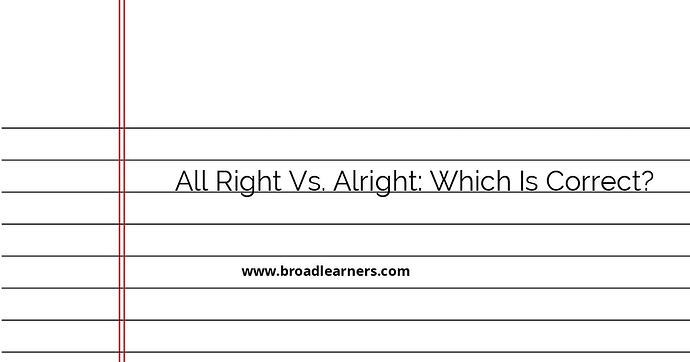Understanding the difference between 'All right' and 'Alright' can help you use the correct term in different contexts. While both terms are used to express agreement or satisfaction, there are distinctions in their usage and acceptance in formal writing. Here's a detailed explanation to clarify the confusion:
'All Right'
'All right' is considered to be the standard term used to indicate that everything is satisfactory or in a good condition. It is widely accepted in formal writing and is considered grammatically correct.
Example:
Everything is all right with the new project proposal.
'Alright'
'Alright' is often used informally as a single word to convey the same meaning as 'all right.' While it is commonly used in spoken English and informal writing, it is generally not recommended for formal or academic writing due to its non-standard status.
Example:
She told me it would be alright to arrive a bit later.
It's important to note that the use of 'alright' is considered less formal and might not be suitable for professional or academic contexts. When in doubt, it's advisable to use 'all right' for clarity and correctness in your writing.
Did I miss anything? Respond below
